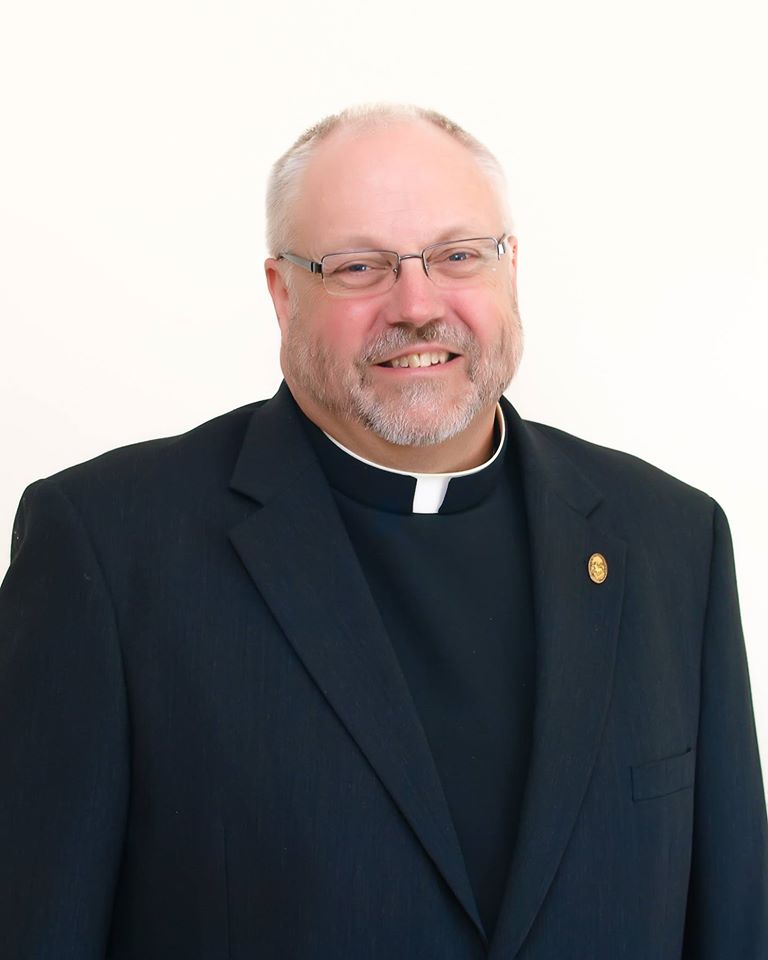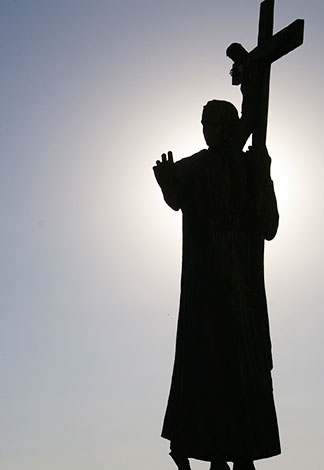By Fr. Bill Nordenbrock, C.PP.S.
I wonder how many preachers will ignore today’s reading from Paul’s Letter to the Ephesians (5:21–32) and hope that no one asks about it. It is tempting to preach around the reading, since the text comes with the heavy baggage of having been misinterpreted in the past and used for self-serving purposes. But what is the truth to be found in this Word of God?
Paul writes that he is referring to the mystery of the relationship of Christ and the Church and yet many have wanted to make this a teaching about marriage. Paul is using marriage only as an imperfect metaphor for the mystery of our relationship with God. When Paul writes about how we need to be subordinate to one another, some people have used this to falsely deny the mutuality that God intends when two people become one in marriage. But remember, Paul is writing about the relationship of Christ and the Church. To read this reading as an instruction about marriage is like reading the story of the Good Shepherd as instruction for us to be like sheep; instead of recognizing the intended message about how God cares for the flock.
The word “subordinate” strikes a dissonant chord to our American ears and hearts. We live in a time and culture where freedom is sometimes put on the pinnacle of all values and “freedom” has become a synonym, or a justification, for selfishness. But Paul is not suggesting that we forfeit freedom. Rather, Paul’s meaning is that we freely choose to give ourselves to the other. It is not self denial, but a free choice of self donation. Paul wants us to recognize that since God has given God-self totally to us in Christ, we are called to respond by freely choosing to give ourselves entirely to God. In this we become one, inseparable, with God. This is the mystery that we are invited to ponder and rejoice in today: The Church and Christ are in communion through the mutual gifts of ourselves.
Communion with God is a gift that God offers to us and that we accept by offering our lives back to God. Do we choose to be one with God? Both the first reading and the Gospel give us examples to follow.
Joshua has gathered all the people together and he puts that question to the people. He says: Are you going to serve the Lord or not? Choose! To what god are you going to give your lives? And the people remembered all that the Lord had done for them. They were no longer slaves, but free; and in freedom they declared that they will give their lives “to serve the Lord, for he is our God.”
In the Gospel story we see that Jesus presents to his disciples a moment of truth, a time to make a decision. The disciples were disturbed and confused because Jesus had presented himself as the Son of Man who had come down from heaven. Many disciples didn’t know how they could accept this as truth. We heard that many choose to abandon Jesus and returned to their former lives. Jesus responded to their lack of faith by going to the Twelve to hear how they would respond. We hear their spokesman, Peter, declare their choice to Jesus. “We believe in you and will remain with you because you are the Holy One of God.” Their choice was made and they remained with Jesus.
Today these readings invite us to remember what God has done for us in Christ and to freely choose to give our lives to God. How will you respond to this invitation?
![]()

Fr. William Nordenbrock, C.PP.S., is the former moderator general of the Missionaries of the Precious Blood.

